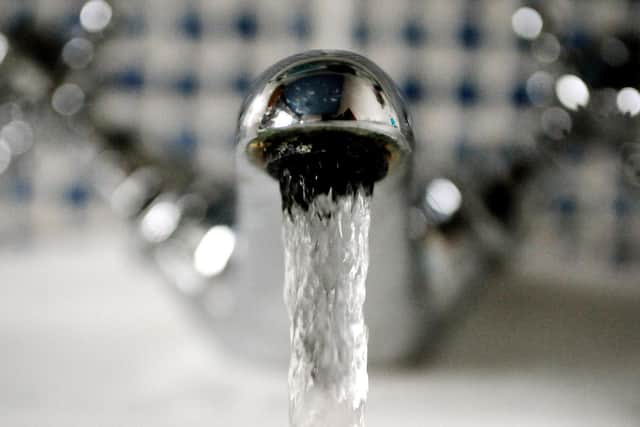Toilets and sinks should not be treated like bins - Leeds-based Niki Roach
I imagine you have never given it much thought. Out of your tap comes high-quality drinking water. And by the time it travels 30cm to the plug, it becomes someone else’s problem.
Our water is some of the best quality product on the planet. We drink, cook, and wash with it. We also flush the loo, water the plants, and keep our cars shiny with it. There is no magic factory making water – it is being removed from rivers and reservoirs, treated and pumped to you before quickly going down the drain.
Advertisement
Hide AdAdvertisement
Hide AdWhat goes down the drain is, frankly, disgusting. Flushed toilets, washing-up water, shower and bath water, plus grime washed into outdoor drains. There are bits of tyre, engine oil and plastic washed from the street, agricultural run-off, a coagulated morass of cooking oil and food waste that could have been recycled, mixed in with a stream of non-degrading wet-wipes, nappies and sanitary products.


Our lifestyles and lack of thought for what goes down the drain is responsible for a fatty mess that causes more than 50 per cent of sewer blockages and can lead to revolting overflows into the rivers where our water comes from. An “out of sight, out of mind” attitude not only damages the environment but costs you a lot of money through your water bill.
Water companies have huge responsibility for the quality of large parts of our water system – and as Ofwat and the Environment Agency have pointed out recently, one it has not necessarily been living up to. But we, as consumers, have a responsibility to our water system too – and it’s a responsibility we have not been living up to either.
We need to re-set the way we think about water. If we were designing a system from scratch, would we replicate the Victorian infrastructure so much of the current set-up is based on?
Probably not, but it’s solid and we have to work with it.
Advertisement
Hide AdAdvertisement
Hide AdFirst, consumers need to stop causing damage to our water environment by treating toilets and sinks like bins. Second, Ofwat and the Environment Agency need the backing of government to get tougher on water companies that fail to care for our environment. Finally, we need those companies to accelerate technological innovation to make the whole system work better, so that sewerage and chemicals don’t leach into – or get pumped into – our waterways.
For consumers, that requires education about how integral we are to the health of our water system, like Thames Water’s campaign about what should not be flushed. For water companies, there should be a carrot and stick approach. It’s right that pollution failures are met with multi-million-pound fines. It’s also necessary to incentivise new technological changes that benefit everyone – like Ofwat’s Water Innovation Fund. Water is precious, we take it for granted at our peril.
In February, the UN IPCC says that by 2050, water scarcity could become a normal part of life across Europe. Here in Yorkshire, we’ve experienced the most severe droughts in living memory – they could be become more frequent.
The Environment Agency estimates we will not have enough water to meet demand within 25 years. We need innovative solutions that help consumers reduce the amount of water we use.
Advertisement
Hide AdAdvertisement
Hide AdWe need new approaches that cut the water used in construction. We need to halt chemical fertilisers leaching into streams and road-side detritus washing into drains. From water companies, we need solutions that reduce leaks so that we’re only removing what we need from our limited water resources. We need innovations that prevent sewerage pipes bursting or overflowing into the natural ecosystem. And we need a new network of high-tech sensors providing open data so we can all monitor the health of our waterways.
The UK’s water sector is one of the most innovative in the world. Winning collaborations in the recent Water Breakthrough Challenge have seen millions of pounds awarded to potentially transformative projects. We are lucky to have a system where we don’t worry about the quality of what comes out of our tap. The downside is that individuals don’t realise how important they are.
We are as responsible for – and integral to – the health of our water system as the companies. The water that comes out of the tap is the same that goes down the drain. Eventually it all ends up back in the same watercourses where our water comes from. It’s time to join the dots.
Leeds-based Niki Roach is the former President of the Chartered Institute of Water and Environmental Management.